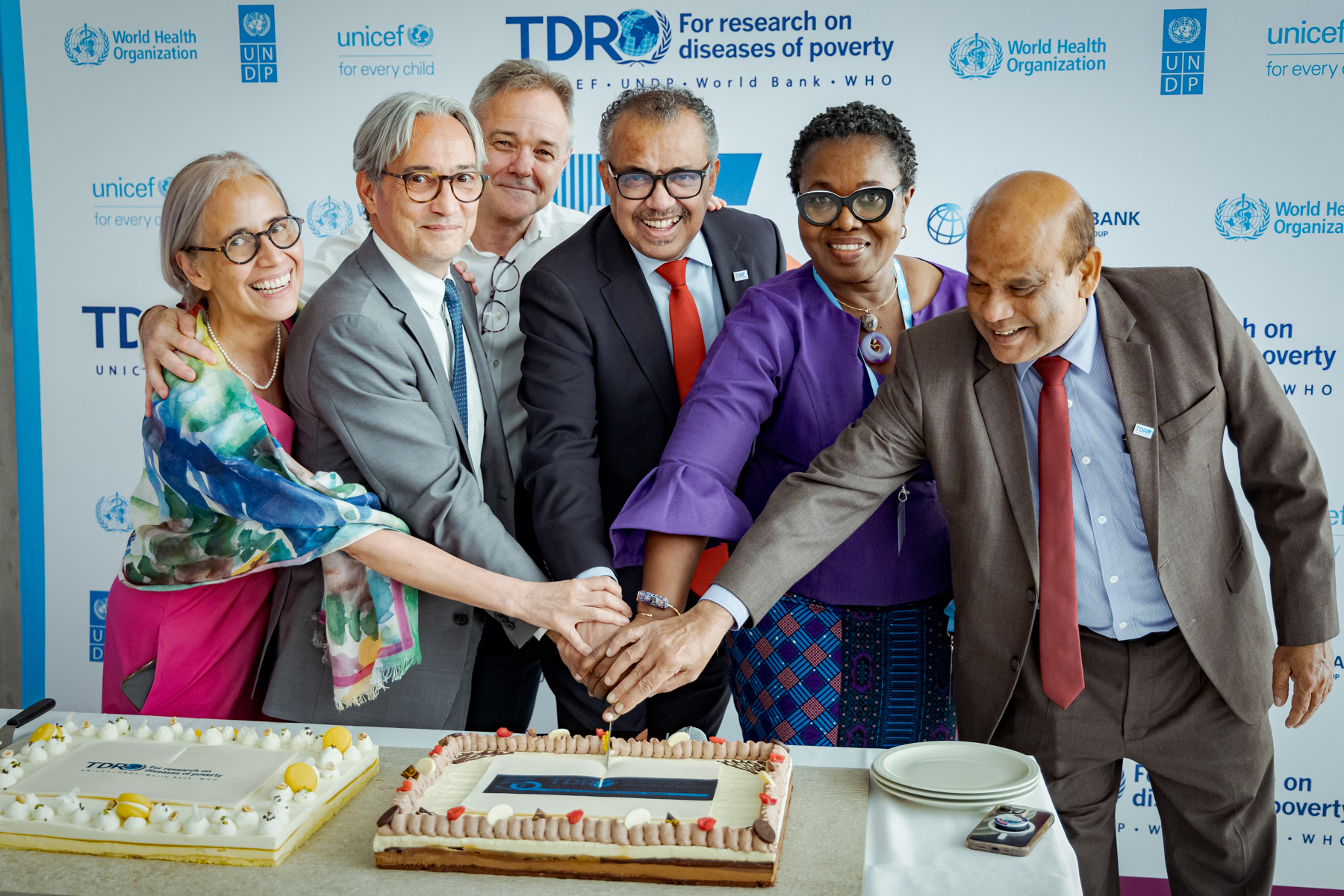“In many ways, TDR’s support started me on a career that has led me to where I am,” WHO Director-General Dr Tedros Ghebreyesus said in his opening remarks to TDR’s Joint Coordinating Board last week in Geneva. “And I know I’m not the only one. TDR has played an influential role in building research leadership across the world.”
 Dr Tedros was among more than 80 donors, partners and other champions who gathered to celebrate the impact TDR has made over the last 50 years to change the course of infectious diseases that disproportionately affect the poor. The event followed other anniversary events earlier this year, at the Multilateral Initiative on Malaria meeting in Rwanda and also during the World Health Assembly.
Dr Tedros was among more than 80 donors, partners and other champions who gathered to celebrate the impact TDR has made over the last 50 years to change the course of infectious diseases that disproportionately affect the poor. The event followed other anniversary events earlier this year, at the Multilateral Initiative on Malaria meeting in Rwanda and also during the World Health Assembly.
Video excerpt: Dr Tedros speaks about the role of TDR in shaping his career.
“In an increasingly polarized world, research and evidence-informed decisions are more important than ever,” said Ms Kerstin Jonsson Cissé, Head of the Research Cooperation Unit at the Swedish International Development Cooperation Agency. “TDR is doing tremendous work, and its impact is clear across the world. We, Sweden, are proud to have partnered with TDR since the very early days, and we hope to continue our engagement for many years to come.”
Professor Gordon Awandare, Founding Director of the West African Center for Cell Biology of Infectious Pathogens at the University of Ghana, spoke about how support from TDR early in his career has allowed him to give back as a research leader. “I have been building research capacity at the University of Ghana for the last 10 years. In that period we have also amplified the work of TDR and funding partners, and we have used the support from TDR to catalyse significant change across the university and several partner institutions that work with us.”

From left to right: Dr Iris Cazali, Dr John Reeder, Dr Jeremy Farrar, Dr Tedros Ghebreyesus, Professor Margaret Gyapong and Dr Sunil De Alwis Credit: TDR / Antoine Tardy
Dr Peter Hotez, Dean of the National School of Tropical Medicine at Baylor College of Medicine in Texas, also commended TDR Director Dr John Reeder for his stewardship of TDR during a difficult period early in his tenure. “I do think your leadership made a huge difference in not only preserving the organization and ensuring its future, but also getting people excited about it,” Dr Hotez said.
Looking ahead, several partners voiced support for the new TDR Strategy 2024-2029. “We are one of the excited partners about the new Strategy that has been launched” and its focus on “strengthening local science and local evidence generation,” said Mr Benjamin Schreiber, Associate Director of Partnerships at Unicef. “What it means for Unicef is that TDR helps us to lower the costs of doing research. TDR ensures that the research being done is of much better quality. TDR enables us and other partners to be faster in doing this because we have local capacity that’s there. TDR enables all this research to be used in a bigger context than if any of the partners would do it alone.”
The celebrations continue with events being organized this week by the Armauer Hansen Research Institute in Ethiopia and in July by the Oswaldo Cruz Foundation in Brazil.
For more information, please contact Dr Garry Aslanyan.

